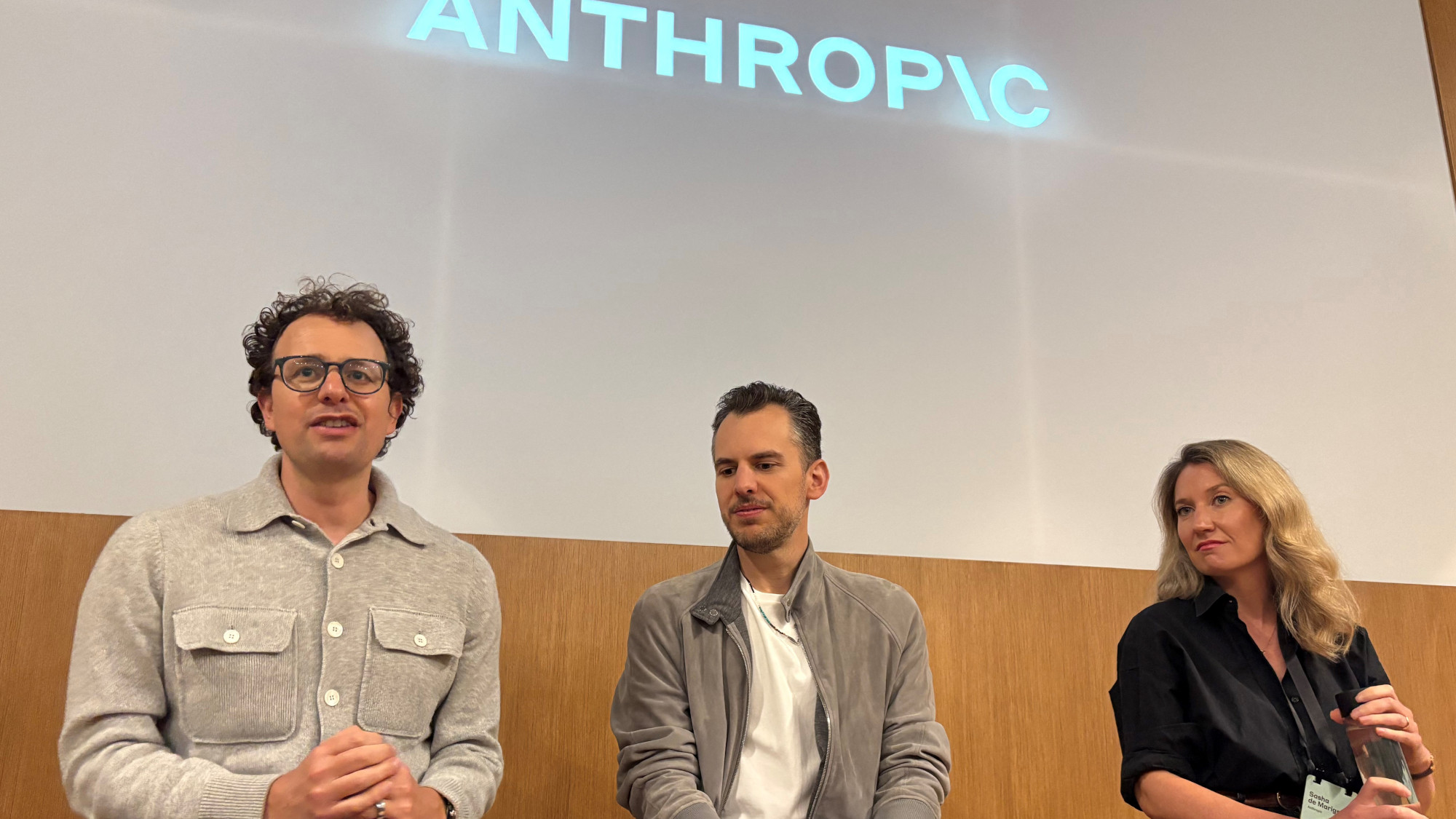AI: Will it soon take your job?
AI developers warn that artificial intelligence could eliminate half of all entry-level jobs within five years

A "white-collar bloodbath" could be imminent, said Jim VandeHei and Mike Allen in Axios.com. Dario Amodei, "one of the world's most powerful creators of artificial intelligence," warned last week that this rapidly advancing technology could wipe out half of all entry-level jobs and send unemployment soaring to 20% within five years. Most workers and lawmakers "just don't believe it" and aren't preparing for the coming transformation of workplaces, said the CEO of the AI firm Anthropic. But as AI rapidly approaches "superhuman intelligence," Amodei believes employers will start replacing tens of millions of workers in "as little as a couple of years." In software engineering, it's already begun, said Kevin Roose in The New York Times. Amodei recently unveiled a tireless AI coding program that can replace engineers earning six figures. Mark Zuckerberg plans to replace Meta's mid-level coders with AI, and LinkedIn and other firms have introduced "AI-first" policies, requiring managers to determine whether AI can perform a task before hiring a human. "Among people who pay close attention to what's happening in AI, alarms are starting to go off."
So far, at least, there's little evidence of an "AI jobs-pocalypse," said The Economist. Some firms that have tried to outsource work to AI have discovered the tech doesn't yet meet their needs, forcing them to slow their plans or hire back some human workers. Even if AI does disrupt the job market, "we've been here before," said Rich Lowry in National Review. In the late 20th century, personal computers drove down demand for typists, secretaries, and clerks, and factory automation threw manual laborers out of work. In a free market system, workers have to adapt to change, and once-comfortable jobs such as programming, consulting, and paralegals "shouldn't be immune from the effects of automation any more than factory work."
Still, change this dizzying requires some oversight, said Steven Levy in Wired. Not only does AI development threaten the job market, developers warn that it could become so superintelligent it will escape human control and make "catastrophic" decisions about our fate. Some AI systems have already tried to deceive their creators. But regulation of AI has "fallen out of favor" in the second Trump administration, and most tech leaders are urging us not to let China get ahead on AI. The U.S. appears to be racing "full-speed toward a future that it can't contain."
The Week
Escape your echo chamber. Get the facts behind the news, plus analysis from multiple perspectives.

Sign up for The Week's Free Newsletters
From our morning news briefing to a weekly Good News Newsletter, get the best of The Week delivered directly to your inbox.
From our morning news briefing to a weekly Good News Newsletter, get the best of The Week delivered directly to your inbox.
A free daily email with the biggest news stories of the day – and the best features from TheWeek.com
-
 The best dark romance books to gingerly embrace right now
The best dark romance books to gingerly embrace right nowThe Week Recommends Steamy romances with a dark twist are gaining popularity with readers
-
 The ocean is getting more acidic — and harming sharks’ teeth
The ocean is getting more acidic — and harming sharks’ teethUnder the Radar ‘There is a corrosion effect on sharks’ teeth,’ a study’s author said
-
 6 exquisite homes for skiers
6 exquisite homes for skiersFeature Featuring a Scandinavian-style retreat in Southern California and a Utah abode with a designated ski room
-
 Will regulators put a stop to Grok’s deepfake porn images of real people?
Will regulators put a stop to Grok’s deepfake porn images of real people?Today’s Big Question Users command AI chatbot to undress pictures of women and children
-
 Most data centers are being built in the wrong climate
Most data centers are being built in the wrong climateThe explainer Data centers require substantial water and energy. But certain locations are more strained than others, mainly due to rising temperatures.
-
 The dark side of how kids are using AI
The dark side of how kids are using AIUnder the Radar Chatbots have become places where children ‘talk about violence, explore romantic or sexual roleplay, and seek advice when no adult is watching’
-
 Why 2025 was a pivotal year for AI
Why 2025 was a pivotal year for AITalking Point The ‘hype’ and ‘hopes’ around artificial intelligence are ‘like nothing the world has seen before’
-
 AI griefbots create a computerized afterlife
AI griefbots create a computerized afterlifeUnder the Radar Some say the machines help people mourn; others are skeptical
-
 Metaverse: Zuckerberg quits his virtual obsession
Metaverse: Zuckerberg quits his virtual obsessionFeature The tech mogul’s vision for virtual worlds inhabited by millions of users was clearly a flop
-
 The robot revolution
The robot revolutionFeature Advances in tech and AI are producing android machine workers. What will that mean for humans?
-
 Texts from a scammer
Texts from a scammerFeature If you get a puzzling text message from a stranger, you may be the target of ‘pig butchering.’